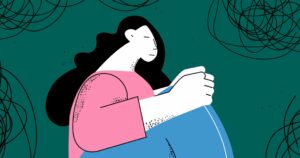Are you constantly anxious about being rejected or criticized? Do you find yourself avoiding situations that could lead to rejection, even if it means missing out on opportunities? If so, you may be experiencing Rejection Sensitive Dysphoria (RSD), a condition that affects many people but isn’t often talked about. Thankfully, there are therapies available to help manage RSD and improve your quality of life. In this blog post, we’ll explore different types of RSD therapy and their benefits in helping individuals learn to cope with the intense emotions associated with rejection sensitivity. So buckle up and get ready for a deep dive into the world of RSD therapy.
Contents
What is Rejection Sensitive Dysphoria?

Rejection Sensitive Dysphoria (RSD) is a mental health condition that causes extreme emotional pain and distress in response to perceived rejection or criticism. People with RSD may feel extremely sensitive to any kind of rejection, whether it’s real or imagined. Even the slightest perceived rejection can trigger intense feelings of anxiety, shame, and worthlessness. RSD can make it hard to function in day-to-day life. It can be difficult to maintain relationships, go to work or school, or even leave the house. RSD can also lead to self-destructive behaviors such as self-harm or substance abuse.
Fortunately, there are effective treatments available for RSD. Cognitive behavioral therapy (CBT) is one of the most effective forms of treatment for RSD. CBT can help you learn to manage your reactions to perceived rejections and criticisms. Other effective treatments for RSD include medication and psychotherapy.
Rejection Sensitive Dysphoria Therapy
Several different therapies can help people with RSD.
While there is no specific therapy for RSD, there are several types of therapy that can help manage the symptoms associated with the condition.Each of these therapies is effective in treating RSD. Here are some of the most common types of therapy for RSD:
- Cognitive-Behavioral Therapy (CBT): This type of therapy focuses on identifying and changing negative thought patterns and behaviors. In the case of RSD, a therapist might work with the individual to identify triggers that lead to feelings of rejection or criticism and help them develop more positive coping strategies.
- Dialectical Behavior Therapy (DBT): This is a type of therapy that combines elements of CBT with mindfulness, emotional regulation, distress tolerance, and interpersonal effectiveness. It can be particularly helpful for individuals with RSD who struggle with intense emotions and interpersonal relationships.
- Acceptance and Commitment Therapy (ACT): This type of therapy focuses on helping individuals accept their thoughts and emotions and commit to taking action to improve their lives. ACT can be helpful for individuals with RSD who struggle with feelings of shame or self-criticism.
- Psychodynamic Therapy: This type of therapy focuses on exploring unconscious patterns of behavior and thought that may contribute to RSD symptoms. Furthermore, It can be helpful for individuals who have experienced trauma or have a history of interpersonal difficulties.
- Mindfulness-Based Therapy: This type of therapy focuses on developing mindfulness skills to help individuals manage difficult emotions and increase their sense of well-being. It can be helpful for individuals with RSD who struggle with anxiety or depression.
- Interpersonal therapy: Interpersonal therapy can help individuals with RSD develop healthier relationships with others by improving communication skills and teaching effective problem-solving techniques.
It’s important to note that therapy should always be tailored to the individual’s specific needs and circumstances.
How Can Rejection Sensitive Dysphoria Therapy Help?

Rejection Sensitive Dysphoria (RSD) therapy is designed to help individuals with RSD manage their symptoms and improve their quality of life. Here are some of the key components of RSD therapy:
- Assessment: The first step in RSD therapy is to assess the individual’s symptoms and identify the specific triggers that lead to feelings of rejection or criticism. This may involve self-report measures, interviews, and observations of the individual’s behavior.
- Psychoeducation: RSD therapy typically involves educating the individual about the nature of RSD and how it can impact their emotions and behavior. This may involve explaining the neurobiological basis of the condition, the common symptoms associated with RSD, and the different treatment options available.
- Coping Strategies: RSD therapy may involve teaching the individual specific coping strategies to manage their symptoms. This may include cognitive-behavioral techniques, such as challenging negative thoughts or reframing situations, as well as relaxation techniques and mindfulness practices.
- Interpersonal Skills: RSD therapy may also focus on developing interpersonal skills to improve the individual’s relationships with others. This may involve teaching effective communication skills, conflict resolution strategies, and assertiveness training.
- Medication Management: In some cases, medication may be recommended to manage symptoms of RSD, such as anxiety or depression. RSD therapy may involve working with a psychiatrist or other medical professional to monitor the individual’s medication and ensure it is working effectively.
Overall, the goal of RSD therapy is to help individuals with RSD develop more effective coping strategies, improve their interpersonal relationships, and enhance their overall well-being.
Pros and Cons of Rejection Sensitive Dysphoria Therapy

Rejection Sensitive Dysphoria (RSD) therapy is a type of treatment that can be helpful for individuals who struggle with intense emotional responses to perceived or anticipated rejection or criticism. While there are many potential benefits to RSD therapy, there are also some potential drawbacks to consider. Here are some of the pros and cons of RSD therapy:
Pros:
- Improved symptom management: RSD therapy can help individuals develop coping strategies to manage their symptoms and improve their quality of life.
- Better interpersonal relationships: RSD therapy can help individuals improve their communication skills and develop more effective interpersonal strategies, which can lead to better relationships with others.
- Tailored treatment: RSD therapy is tailored to the individual’s specific needs and circumstances, which can lead to more personalized and effective treatment.
- Increased self-awareness: RSD therapy can help individuals develop a better understanding of their own emotions and behaviors, which can lead to increased self-awareness and self-acceptance.
Cons:
- Time commitment: RSD therapy can be a significant time commitment, particularly if it involves multiple sessions per week or multiple types of therapy.
- Financial cost: RSD therapy can be expensive, particularly if it is not covered by insurance.
- Potential side effects: If medication is used as part of RSD therapy, there may be potential side effects to consider.
- Emotional discomfort: RSD therapy may involve confronting difficult emotions or experiences, which can be emotionally uncomfortable or distressing.
It’s important to weigh the potential benefits and drawbacks of RSD therapy and consider your individual needs and circumstances before deciding if it is the right treatment for you.
Which Type of Therapy To Choose?
It’s important to work with a licensed mental health provider who can assess your symptoms and help you determine which type of therapy may be most effective for you.
Here are some factors to consider when choosing a therapy for RSD:
- The severity of symptoms: The severity of your RSD symptoms may impact the type of therapy that is recommended. For example, if you have severe anxiety or depression, a therapy like Cognitive-Behavioral Therapy (CBT) or Dialectical Behavior Therapy (DBT) may be recommended.
- Personal preferences: It’s important to consider your personal preferences when choosing a therapy. For example, if you prefer a more structured approach, a therapy like CBT or DBT may be a good fit. If you prefer a more experiential approach, a therapy like Acceptance and Commitment Therapy (ACT) or Mindfulness-Based Therapy may be a better fit.
- Availability of therapy: Some types of therapy may not be available in your area or may not be covered by your insurance. It’s important to consider the availability and cost of therapy when making your choice.
- Treatment history: Your previous experience with therapy may also impact the type of therapy that is recommended. For example, if you have had success with CBT in the past, it may be recommended again for RSD.
Ultimately, the choice of therapy should be based on a thorough assessment of your needs and circumstances. It’s important to work with a licensed mental health provider who can help you make an informed decision about the best course of treatment for your RSD symptoms.
Conclusion
Rejection-sensitive dysphoria is a condition that can have a profoundly negative impact on an individual’s life, however, it does not have to be debilitating. With the right therapy and support, those suffering from rejection-sensitive dysphoria can learn to manage their symptoms and live happier lives. There are many different types of therapies available that can help with RSD, ranging from cognitive behavioral techniques to more holistic approaches such as mindfulness-based stress reduction or yoga. Whichever way you decide to go, seeking out professional help is essential for treatment to be successful.
For more information, please contact MantraCare. Online therapy types include videoconferencing, phone sessions, messaging-based therapy, chat-based therapy, and therapy based on different problems. If you have any queries regarding Online Counseling experienced therapists at MantraCare can help: Book a trial therapy session


